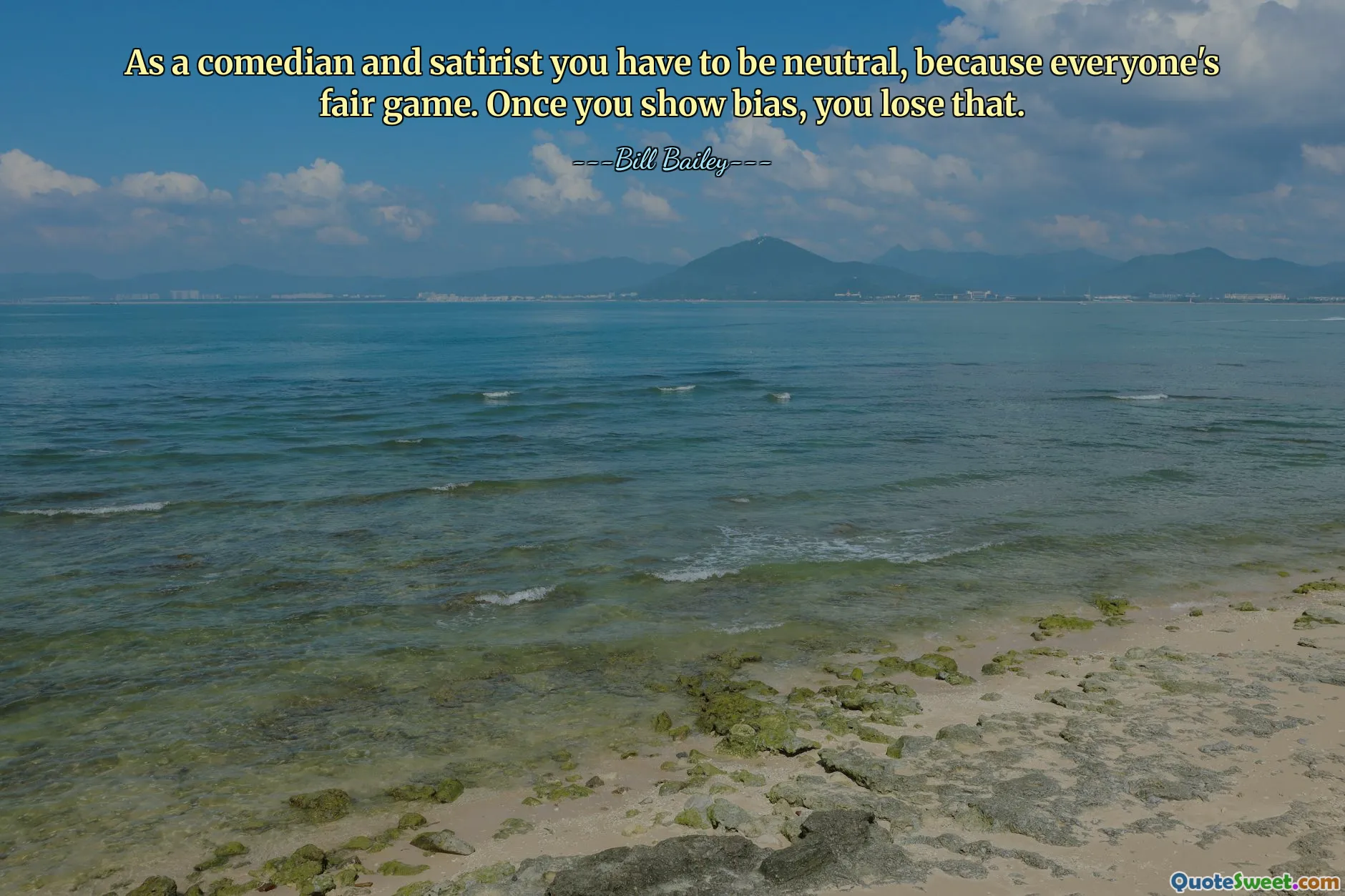
As a comedian and satirist you have to be neutral, because everyone's fair game. Once you show bias, you lose that.
The quote highlights the delicate balance comedians and satirists must maintain in their craft. Their role often involves critiquing society, politics, and individuals through humor, which demands a level of neutrality to ensure fairness and impartiality. When a satirist or comedian reveals bias, it can undermine their credibility and weaken their, perhaps unintentional, influence. What makes satire powerful is its ability to expose truths and challenge assertions, but this power hinges on perceived objectivity. If the audience senses partisanship or unfairness, the message risks being dismissed or misunderstood. This quote prompts reflection on the importance of maintaining neutrality to preserve the integrity of satire, as it is both a mirror and a critique of society. By remaining neutral, a comedian can navigate sensitive topics without becoming personally embroiled in the issues they mock or scrutinize. Moreover, neutrality does not imply a lack of opinion but rather the disciplined presentation of diverse perspectives, allowing audiences to draw their own conclusions. The line between creating comedy that is provocative and one that alienates is thin, and that balance requires a conscientious commitment to fairness. Ultimately, the quote underscores that the strength of satire lies in its ability to challenge power and societal norms without becoming biased or partial—thus allowing it to serve as an effective tool for social commentary while maintaining respect for its subjects.
---Bill Bailey---











